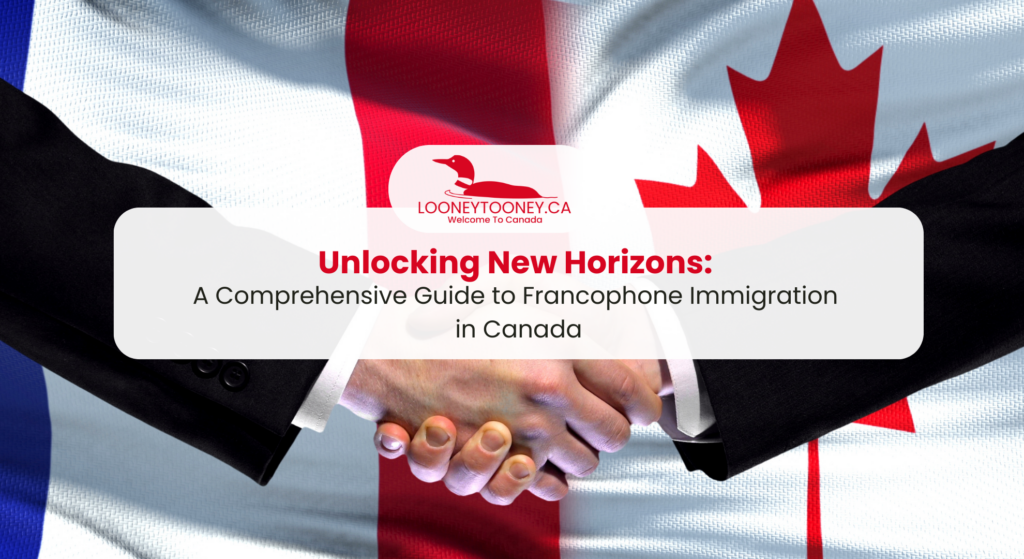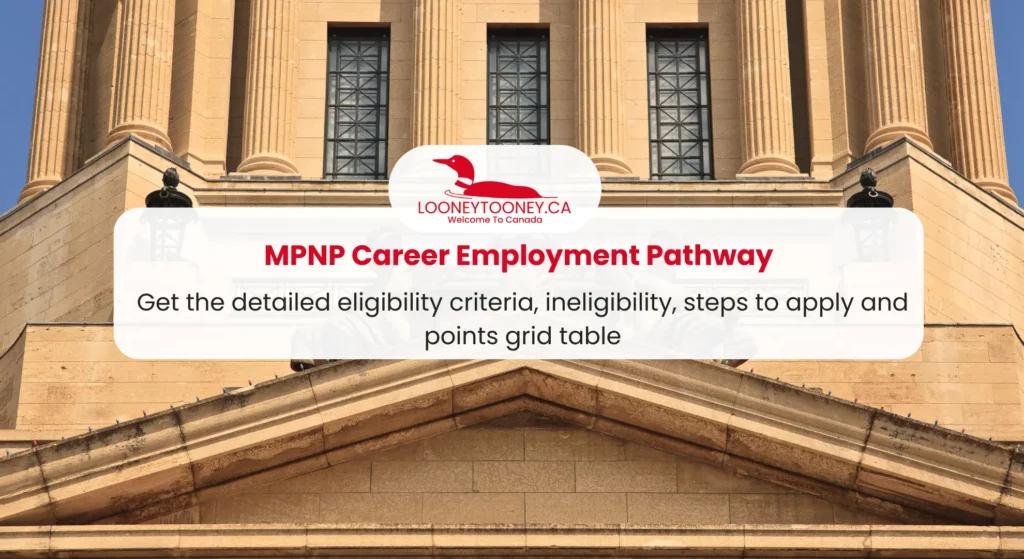Canada welcomes French-speaking immigrants to its diverse and vibrant Francophone communities outside Quebec. These communities offer unique cultural experiences and bilingual opportunities that enhance both personal and professional life. Whether you are seeking work experience, planning to immigrate as a skilled worker, or looking for youth travel opportunities, Canada has customized programs to support your journey.
Discover the benefits of joining a Francophone community and explore the various pathways that can lead you to a fulfilling life in Canada.
Table of Contents
- What is Francophone Immigration Canada?
- Benefits of Canada’s French-Speaking Community
- Francophone Immigration Programs in Canada
- Immigrate to a Francophone Community: Pathways and Opportunities
- Settling in a Francophone Community: Support and Integration Services
- FAQs on Francophone Immigration Canada
What is Francophone Immigration Canada?
Francophone immigration to Canada refers to the targeted movement of French-speaking individuals to regions outside Quebec. This strategy aims to support and sustain Francophone and Acadian minority communities across the country, countering their demographic decline. By promoting linguistic diversity and reinforcing the French language and culture, Francophone immigration plays a vital role in enhancing Canada’s bilingual identity.
The Canadian government has implemented various measures to facilitate and encourage Francophone immigration. Initiatives such as the Francophone Immigration Policy and the Francophone Immigration Support Program (FISP) are designed to facilitate the arrival of more French-speaking immigrants and ensure their successful integration. This collaborative effort involves federal, provincial, and territorial governments, as well as engagement with Francophone communities to address their specific needs and maintain their vitality.
Benefits of Canada’s French-Speaking Community
Explore the perks of being part of the Francophone community in Canada. From job opportunities to cultural enrichment, find out how speaking French can enhance your life and career.
Employment Opportunities: Fluency in French opens up diverse job prospects in bilingual sectors like government, education, tourism, and international organizations. Employers value bilingualism, enhancing career opportunities.
Cultural Enrichment: Being part of the Francophone community offers access to rich cultural experiences, including literature, music, cinema, and culinary traditions. Cultural events foster exchange and immersion.
Global Connections: French, as a major language, facilitates communication and connections with French-speaking communities worldwide, fostering international collaboration.
Educational Opportunities: Francophone students access educational programs in French, maintaining language and cultural identity while excelling academically.
Community Support: Francophone communities provide strong support networks, including social services and cultural events, fostering belonging and collaboration.
Preservation of Language and Culture: Participation in Francophone communities contributes to preserving and promoting the French language and culture, enriching society’s cultural fabric.
Access to Language-Specific Programs: Francophone immigrants benefit from tailored language programs that enhance their language skills and integration into Canadian society.
Cultural Integration: Embracing the French language facilitates deeper cultural integration within Francophone communities, fostering belonging and smooth integration.
Job Opportunities in Francophone Regions: Fluency in French enhances job prospects in Francophone regions, where industries actively seek bilingual professionals, supporting career advancement and growth.
These advantages highlight the practical benefits and opportunities associated with being part of the Francophone community, making it an appealing choice for individuals seeking linguistic, cultural, and professional enrichment.
Francophone Immigration Programs in Canada
Here are some federal and provincial immigration programs specifically designed for French-speaking applicants:
Express Entry for French-Speaking Skilled Workers
Through Express Entry, you can immigrate to Canada as a French-speaking skilled worker and contribute significantly to the Canadian economy. By making Canada your new home, you and your family will gain access to:
- Services for newcomers available in both French and English
- One of the world’s highest-quality education systems
- Numerous job opportunities across the country
Express Entry is an online application system that creates a pool of candidates eligible for permanent immigration to Canada. To enter the pool, you must qualify for one of the immigration programs within Express Entry (Federal Skilled Worker Program, Federal Skilled Trades Program or Canadian Experience Class). Your profile is scored based on various factors, including skills and experience. To receive an invitation to apply for permanent residence, you need to achieve a higher score.
If you are eligible for one of the Express Entry programs, a province or territory may nominate you for permanent residence through the Provincial Nominee Program (PNP). As a nominee, you will receive additional points, increasing your chances of being invited to apply for permanent residence.
Ontario French-Speaking Skilled Worker Stream
The Ontario French-Speaking Skilled Worker Stream falls under the Human Capital stream of the Ontario Immigrant Nominee Program (OINP). This stream is tailored for French-speaking foreign workers who have strong English language skills. It offers eligible individuals with the necessary skilled work experience, language proficiency, and education the opportunity to apply for permanent residency in Ontario, thereby enabling them to live and work permanently in the province.
New Brunswick Strategic Initiative Stream
The New Brunswick Strategic Initiative Stream is an immigration program administered by the Government of New Brunswick (GNB). This program allows GNB to nominate individuals with the greatest ability to become economically established in the province. This stream is for French-speaking workers with the skills, education, and work experience to contribute to the economy, who are ready to live and work permanently in New Brunswick.
Immigrate to a Francophone Community: Pathways and Opportunities
Explore various pathways and opportunities to immigrate to a Francophone community in Canada. Whether you’re seeking work experience, planning to come as a skilled worker, or looking for youth travel opportunities, there are several options tailored to French-speaking immigrants.
Canadian Work Experience
The Francophone mobility work permit simplifies the process for Canadian employers to hire you without needing a labour market impact assessment, provided you meet specific criteria and plan to live and work outside Quebec.
Eligibility Criteria for Applications after June 15, 2023
If you are applying after June 15, 2023, you must meet the following criteria to be eligible:
- Meet the basic eligibility criteria for a work permit.
- Live and work in one of the nine provinces in Canada or three territories outside Quebec.
- Demonstrate intermediate-level French speaking and listening skills, equivalent to level 5 or higher on the Niveaux de compétence linguistique canadiens (NCLC) scale.
- Have a job offer classified under any TEER category of the NOC system, unless the job is in a primary agriculture occupation under TEER 4 or 5.
Eligibility Criteria for Applications Before June 15, 2023
To be eligible, you must have:
- Met the general requirements for a work permit
- Decided to live and work in one of the nine Canadian provinces or three territories outside Quebec
- Demonstrated to a processing officer that you could score at least 7 on the NCLC test
- Secured a job offer in a position classified under TEER 0, 1, 2, or 3 of the NOC
International Experience Canada: Work and Travel Opportunities for Youth
If you are between 18 and 35 years old, you might qualify for International Experience Canada (IEC), where IRCC collaborates with over 35 countries or territories.
IEC offers youth the chance to travel and work in Canada for up to two years. There are 3 types of work and travel experiences available:
1. Working Holiday
This category is suitable for you if:
- You do not have a job offer.
- You intend to work for multiple employers in Canada.
- You plan to work in various locations.
- You aim to earn income to support your travels.
The type of work permit provided for Working Holiday is an open work permit, allowing you to work for nearly any employer in Canada (with some exceptions).
2. Young Professionals
This category is designed for you if:
- You have been offered a job in Canada that enhances your professional growth.
- You will be employed by the same employer in the same location throughout your stay in Canada.
Under this category, the work must be paid and not self-employed. The type of work permit granted in the Young Professionals category is an employer-specific work permit.
3. International Co-op (Internship)
This category is tailored for you if:
- You are currently a student who is registered and attending an educational institution at the post-secondary level.
- You have received a job offer for a work placement or internship in Canada.
- You require this work placement or internship to fulfill your academic requirements.
- You will be employed by the same employer in the same location throughout your stay in Canada.
The type of work permit provided in the International Co-op (Internship) category is an employer-specific work permit. The internship offered to you in Canada must be directly related to your field of study.
If you are a citizen of a partner country, you may have the opportunity to apply to one or more of these three categories.
Find a Job Through the Destination Canada Mobility Forum
The Destination Canada Mobility Forum is specifically designed for Francophone and bilingual candidates interested in relocating to Canada to live and work within a French-speaking community outside Quebec.
Upon registration, you will receive an invitation if you are a Francophone or bilingual candidate meeting at least one of the following criteria:
- You have an Express Entry profile.
- You currently hold a Working Holiday or Young Professionals permit through International Experience Canada.
- You fulfill the eligibility requirements for immigration to Canada outside Quebec.
- Your profile aligns with the skills and experience sought by Canadian employers.
The Forum will connect you with:
- Representatives from IRCC who will offer insights into Canada’s immigration procedures.
- Representatives from Canada’s provinces, territories, and Francophone communities who will provide information about their regions, cities, communities, and immigration programs.
- Individuals available to address your inquiries regarding life in French in Canada (outside Quebec) and the services offered to newcomers.
- Organizations responsible for evaluating your educational credentials and administering approved language tests for immigration to Canada.
- Employers seeking to fill positions in Canada, specifically in provinces and territories other than Quebec.
Settling in a Francophone Community: Support and Integration Services
Discover the benefits of embracing the French language and culture in your everyday life, explore the warm embrace of 14 welcoming Francophone communities, and prepare yourself for smooth integration into Canadian society through comprehensive pre-arrival assistance.
Choose a Francophone Community Outside of Quebec
French serves as one of Canada’s two official languages, and while the majority of French-speaking Canadians reside in Quebec, numerous others inhabit provinces and territories across the nation.
Living in a French-speaking community outside of Quebec offers several advantages. Here, you and your family can:
- Access a range of job opportunities in both French and English.
- Utilize free language courses available for permanent residents.
- Enroll in French-language schools for educational needs.
- Access community, healthcare, and daycare services provided in French.
- Receive support from the local community to facilitate your settlement process.
Welcoming Francophone Communities Initiative
Establish your new life in a welcoming Francophone community in Canada, where 14 vibrant locales are dedicated to supporting French-speaking newcomers in their settlement journey.
Explore the offerings of these 14 communities and discover the one that aligns with your aspirations:
- Évangéline region, Prince Edward Island
- Clare, Nova Scotia
- Haut Saint-Jean, New Brunswick
- Labrador City – Wabush, Newfoundland and Labrador
- Hawkesbury, Ontario
- Sudbury, Ontario
- Hamilton, Ontario
- Seine River region, Manitoba
- Moose Jaw and Gravelbourg, Saskatchewan
- Calgary, Alberta
- Prince George, British Columbia
- Yellowknife, Northwest Territories
- Whitehorse, Yukon
- Iqaluit, Nunavut
Pre-Arrival Services
You and your family can access free in-person and online services to help you prepare for and adjust to life in Canada, known as pre-arrival services.
Pre-arrival services can assist you with:
- Preparing for your move to Canada
- Getting your education, credentials and work experience recognized in Canada
- Connecting with employers to find a job
- Linking with free services available after you arrive in Canada
All of these services are funded and available to you at no cost.
You can access free in-person and online services if:
- Your permanent residence application has been approved
- You are currently outside of Canada
- You have one of the following documents:
– A letter from IRCC stating you can get pre-arrival services
– Confirmation of permanent residence letter
– A passport request letter indicating the granting of a permanent resident visa
– Letter from IRCC requesting your medical exam results
– Single-entry permanent resident visa
– Letter from IRCC notifying you that you can pick up your permanent resident visa
Please note, pre-arrival services are not available to those coming to Canada for a short stay. Temporary residents visiting, studying, or working in Canada on a visa or permit are not eligible for these services.
FAQs on Francophone Immigration Canada
Below are some commonly asked questions along with their answers regarding Francophone Immigration in Canada:
Q. What is Francophone immigration in Canada?
A. Francophone immigration in Canada refers to the immigration of French-speaking individuals to Canada. It is a key part of Canada’s efforts to maintain and promote the French language and Francophone culture, particularly outside of Quebec. The government has programs to attract French-speaking immigrants to settle in Francophone communities outside of Quebec.
Q. Who is eligible to immigrate to a Francophone community in Canada?
A. Eligibility criteria vary depending on the immigration program you apply for, but generally, fluency in French and meeting specific language and education requirements are essential.
Q. What are the benefits of settling in a Francophone community?
A. Settling in a Francophone community offers benefits such as access to French-language services, cultural immersion, and job opportunities in bilingual sectors. These communities provide a supportive environment for French-speaking immigrants to integrate into Canadian society while maintaining their language and cultural identity.
Q. Do Francophone communities provide French-language services?
A. Yes, Francophone communities offer a wide range of French-language services to residents, including education, healthcare, legal assistance, and government services.





